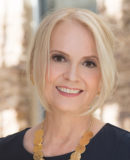
Dear Moneyist,
I have a situation that keeps me awake at night. I am an only child and have no family left except some cousins I barely know. Also, the cousins that I barely know are older than me, so I’m assuming I might out-last them. I’m 65 and concerned about being victimized as I get older. I have some reason to believe that I am beginning to show the start of some cognitive decline. How do I protect myself from being taken advantage of by people as I get older?
I am already wrestling with a bank investment adviser putting me in an investment with ridiculous fees. Currently I am able to undo the damage but what if I wasn’t able to do that? As my mother got older (she died at 92), I felt people had the attitude that they could “fleece” her anyway they wanted to and it was appropriate. With her I went through crooked lawyers, accountants, church members, the investment “people who lunch,” charities, and on and on.
I was able to protect her from most of it, but it was work. So, who will help me? My net worth is about $1.3 million, but money goes fast as my health needs increase.
– Concerned for my Golden Years
Dear Golden Years,
Fire the bank’s investment adviser.
Once you’ve done that, remember that you are the one in control of your finances. If you don’t understand how an investment works or you feel like someone is trying to bamboozle you, follow your instincts. You should never feel uncomfortable or be made to feel uncomfortable by an adviser, accountant, lawyer, relative or friend when it comes to your finances. You may also want to consider a fee-based old-fashioned bank fiduciary adviser, who must put your interests first.
Organizations, including the Alzheimer’s Association and AARP, have information to assist a person who may have dementia to plan for a future. These contingency plans should include a power of attorney for health care — a younger family friend or lawyer or financial adviser — should you become unable to make decisions, a living will that will name an executor of your estate, and beneficiaries and a revocable living trust to manage your property if you are unable to.
I’m sorry to you hear what you went through with your mother. It suggests that you are made of tough stuff. You just need the right tools (or, in this case, professionals) to get the job done. I recently wrote a story about why so many people still fall for Ponzi schemes. (I’m not trying to give you more cause for concern!) They are tempted with high returns, sweet talk followed by mumbo-jumbo and encouraged to release money from through an IRA or HELOC. That won’t happen to you.
There are changes you can make today. “It’s imperative that you find a fee-only fiduciary to manage your accounts, rather than a bank,” says Lorraine Ell, chief executive and senior financial adviser of Better Money Decisions, a financial advisory firm near Albuquerque, New Mexico. “It may surprise you to learn this, but the bank’s advisers don’t necessarily have to act in your best interest on all your accounts. A firm that is 100% fiduciary has that obligation.”
The government’s fiduciary rule came into effect last June and is a game-changer for people like you. (President Trump has delayed the remaining portions of that rule.) Bottom line: Financial advisers registered with state regulators or the Securities and Exchange Commission owe clients “a duty of undivided loyalty and utmost good faith.” You should ask any adviser you contemplate working with, “Are you a fiduciary?” Many may just say yes. And make sure they are registered.
You need a team: a guardian or conservator to make financial and medical decisions for you, Ell says. This could be a lawyer or a family friend. “You should also designate a ’trusted contact’ for your financial adviser,” she adds. Your financial adviser should be able to contact this person if he or she becomes concerned that you are unable to make sound financial decisions for yourself. You have a right to enjoy your retirement free from worry.
I posted your question in the Moneyist Facebook Group and I encourage you to read the responses. They are both insightful and compassionate and, most importantly, show that you are not alone.
You’ve earned the right to ask questions about wealth you have spent a lifetime building.








